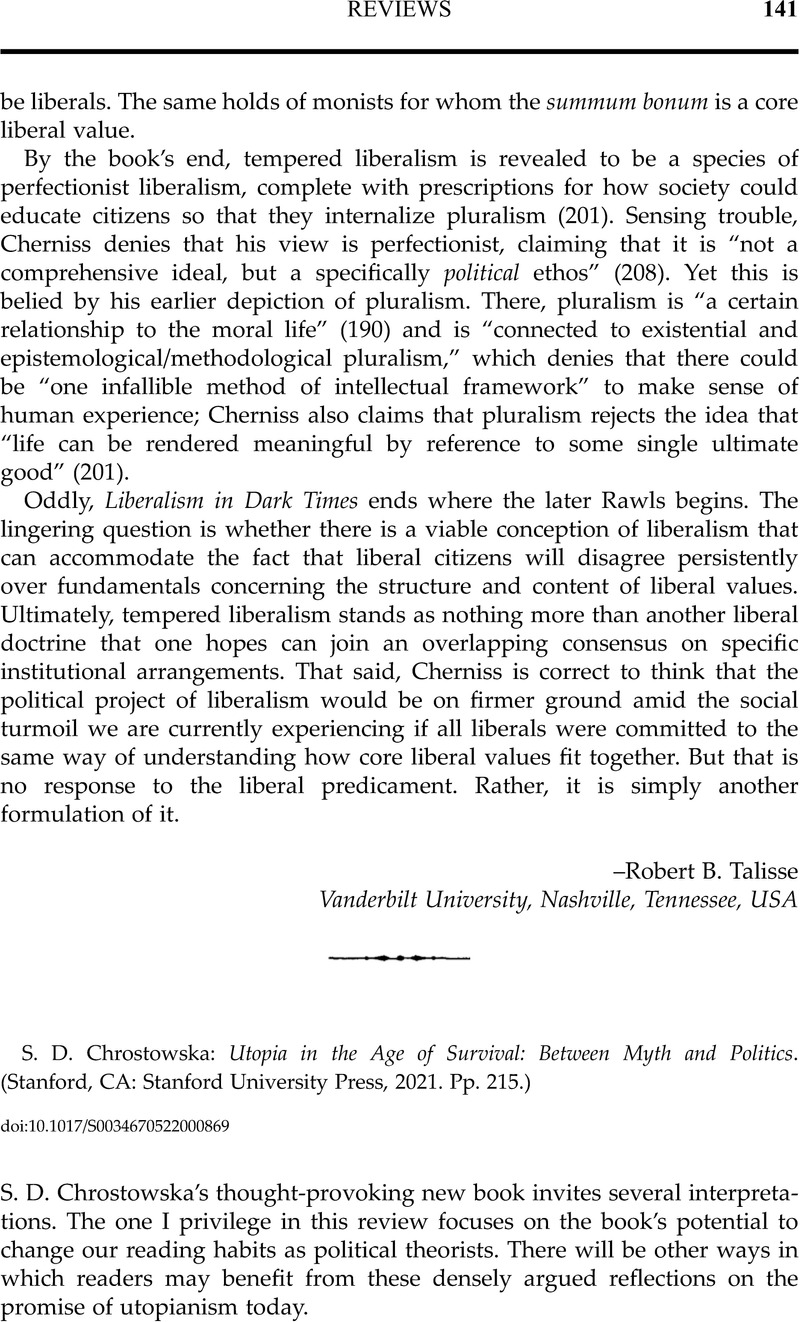No CrossRef data available.
Article contents
S. D. Chrostowska: Utopia in the Age of Survival: Between Myth and Politics. (Stanford, CA: Stanford University Press, 2021. Pp. 215.)
Review products
S. D. Chrostowska: Utopia in the Age of Survival: Between Myth and Politics. (Stanford, CA: Stanford University Press, 2021. Pp. 215.)
Published online by Cambridge University Press: 13 September 2022
Abstract
An abstract is not available for this content so a preview has been provided. Please use the Get access link above for information on how to access this content.

- Type
- Book Review
- Information
- Copyright
- Copyright © The Author(s), 2022. Published by Cambridge University Press on behalf of University of Notre Dame


